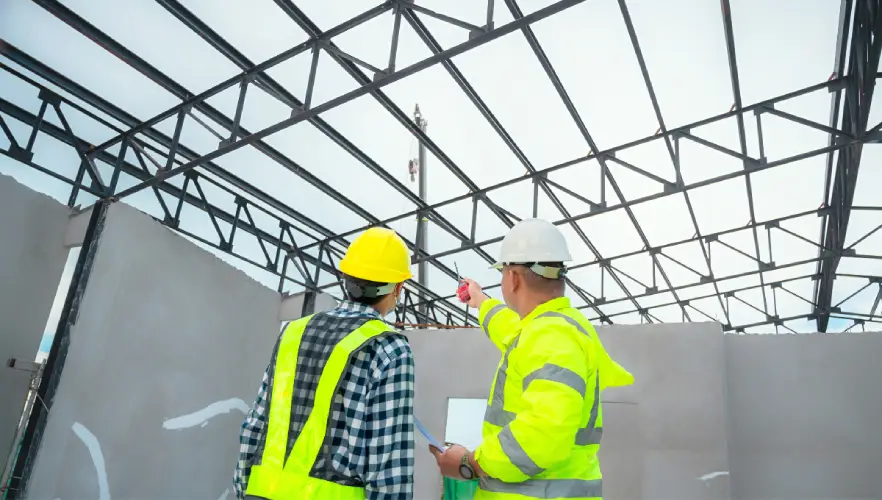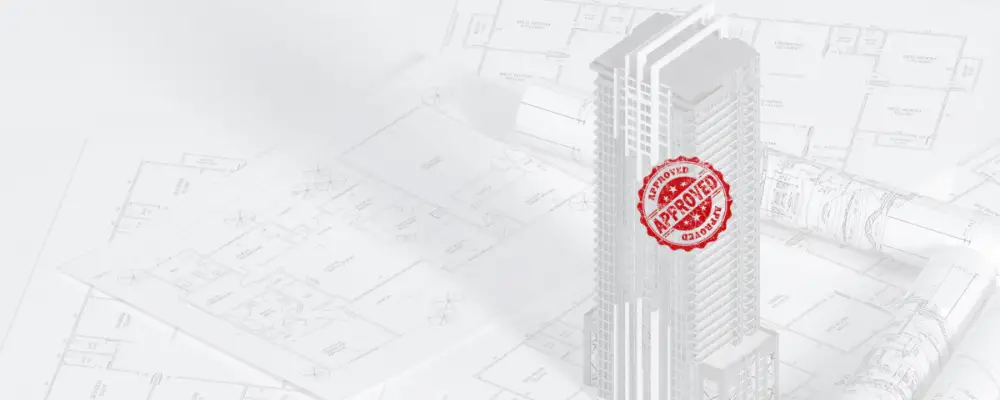A Building Completion Certificate (CC) is an important legal document issued by the local authority for a newly built project. Obtaining the completion certificate during the purchasing process is essential, as it certifies the building’s construction is complete and that is ready to occupy. Failing to get the CC could result in legal complications and affect future sales or tenancy. Here, we look at a Building Completion Certificate, its importance, and how to acquire it.
Understanding Building Completion Certificate Regulations
A Building Completion Certificate is a legal document that validates that the construction of a building (residential or commercial) is complete and ready for possession. Relevant authorities will inspect whether the building complies with the approved plans and local development regulations and issue the completion certificate to legitimise the building.
The completion certificate is crucial for a builder or the building owner as it ensures that the building is developed following the applicable laws and guarantees the quality of the structure. The CC contains all the necessary information about the building, including the plan, height, and materials used. This certificate will help in obtaining electricity and water from the corporation and will also be beneficial during sales, tenancy, and applying for loans against property.
Process for Verification Before Issuing a Completion Certificate

Application
After the construction, the builder or property owner must apply for the building completion certificate from the local authorities. In the application form, the owner must fill in all the necessary details of the construction, including the name, permit number, survey number, nature of construction, and date of completion, along with a copy of legal documents such as the building plan approval, NOCs, structural safety certificate, property tax, and other necessary documents related to the building.
Inspection

After submitting the application form, the local authorities will schedule an inspection. A team of officials will be inspecting the building on the scheduled date. The inspection parameters ensure the building is constructed based on the legal codes, regulations, and safety standards. If the inspection is satisfactory, they will move to the next process of providing the certificate. However, if there are any changes in the construction, a demolition letter will be issued. In case of minor changes, a penalty will be charged.
Document Review
After inspecting the building, the local authority will review the submitted documents, such as building plans, structural stability, and occupancy certificates. The final output will be reviewed if any alterations are suggested during the inspection.
Approval
Upon satisfaction with the document verification and inspection, the local authorities will issue the building completion certificate within three to four weeks.
Criteria for Obtaining a Building Completion Certificate
The criteria for obtaining a building completion certificate in India vary from one state to another. However, here are some general criteria a building must meet to obtain the completion certificate.
- The building must be constructed within the approved building plan that has been issued.
- The building must follow the codes of construction and local building development guidelines, such as building height, materials used, and more.
- The builder or the owner must obtain the No Objection Certificate issued by the various government departments.
- The building must have a structural safety certificate and a building warrant.
Legal Documents Required for obtaining a Building Completion Certificate
Here are some documents that a builder or property owner must have to obtain the building completion certificate.
- Duly filled application form
- Building completion certificate
- Building Plan Approval
- Structural safety certificate
- Property tax receipts
- NOC from the fire department
- NOC for lift installation
- Encumbrance certificate
- NOC for the sewage system
- NOC for the water supply plan
- Certificate for electrical supply
- Affidavit for provisional completion certificate
- Any other document or declaration (if required)
Benefits of Having a Building Completion Certificate
- It ensures that the construction is built within the rules and regulations of the country.
- The certificate helps obtain property registration, water, and electricity connections from the corporation.
- The certificate contains all the information about the construction and can secure the building from any legal complications.
- This ensures that the buyer is not living in an illegal building.
- Property tax benefits can be claimed using the completion certificate.
- It is a mandatory document when selling or leasing the property.
- It can help the owner if he/she wishes to apply for a loan and other benefits from the government against the property.
Consequences of Not Having a Building Completion Certificate
Failing to obtain a building completion certificate could lead to numerous consequences. Here are some of the consequences of not having a building completion certificate.
- Authorities can file hefty penalties for not having a building completion certificate, or in a worst-case scenario, they could even declare that the building is illegal, leading to to the issuance of demolition orders.
- Without the Completion Certificate, the property owner or developer will find it difficult to sell or lease the property. Since this is a mandatory certificate, leasing or selling the property without this may be considered illegal.
- It will be difficult for the property owner to obtain a financial loan against the property without the completion certificate.
- The property owner cannot file or enjoy the income tax benefits without the CC.
Conclusion
It is crucial to hold the Building Completion Certificate for all types of buildings (both residential and commercial) as an owner, buyer, or developer. It provides the property’s legal proof and all the necessary construction details. The certificate provides the details of the building and also ensures the basic amenities, such as water and electricity. This certificate could act as a legal aid for the property owner and help them enjoy the financial benefits of the property.

